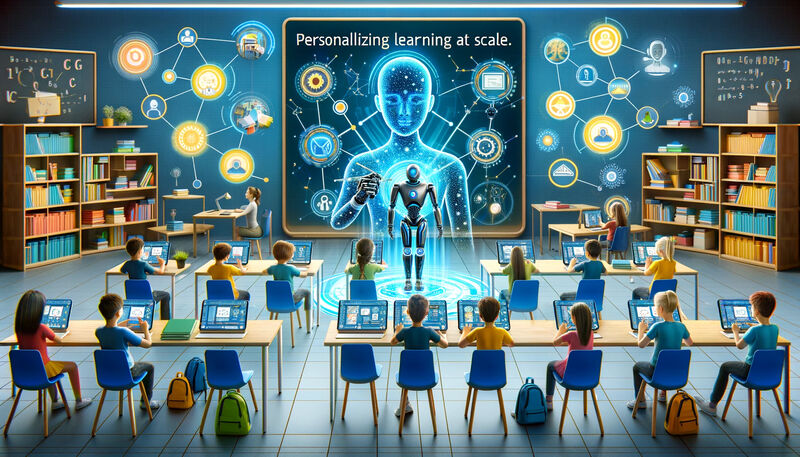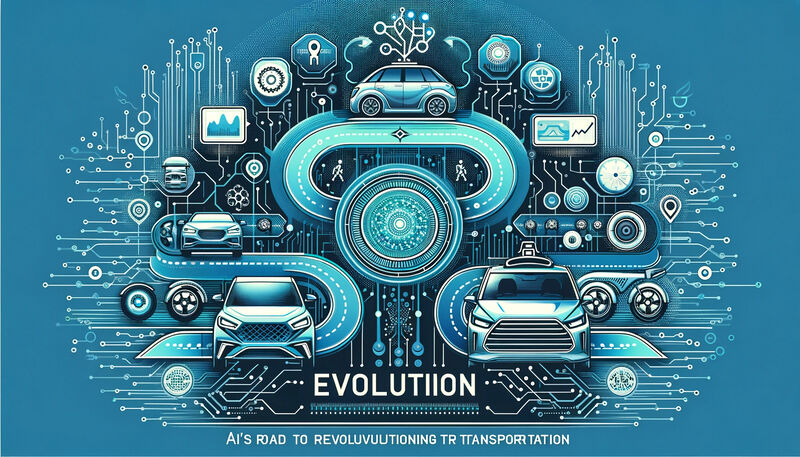Artificial Intelligence in Education: Personalizing Learning at Scale

The integration of Artificial Intelligence (AI) into the educational sector heralds a transformative era of personalized learning, where teaching methods and materials are tailored to meet the unique needs of each student. This groundbreaking approach promises to enhance learning outcomes, streamline administrative tasks, and bridge educational gaps at an unprecedented scale. This article delves into how AI is reshaping education, offering a more individualized learning experience and the challenges it faces.
The Rise of AI in Education
AI in education encompasses a broad spectrum of applications, from intelligent tutoring systems and personalized learning paths to automation of administrative tasks and data-driven insights into student performance. These technologies leverage machine learning algorithms and big data analytics to adapt to the learning pace and preferences of individual students, providing a customized educational journey.
Personalizing Learning Experiences
Intelligent Tutoring Systems: AI-powered tutoring systems can simulate one-on-one interactions between students and teachers, offering immediate feedback and adjusting instructional strategies based on the learner's progress.
Adaptive Learning Platforms: These platforms assess a student's current knowledge base and learning pace, adapting the content difficulty and learning style to suit the student's needs, thereby fostering a more engaging and effective learning environment.
Language Learning Applications: AI-driven language learning tools provide pronunciation feedback, personalized learning exercises, and conversational practice, making language learning more accessible and efficient.
Streamlining Administrative Tasks
AI can automate routine administrative tasks, freeing educators to focus more on teaching and less on paperwork. Applications include:
- Automated grading of quizzes and assignments, allowing for immediate feedback.
- Smart scheduling tools that optimize timetables and resource allocation.
- Data analysis tools that track attendance, engagement, and academic performance, offering insights to improve educational outcomes.
Bridging Educational Gaps
AI has the potential to democratize education, making high-quality learning resources accessible to students in remote or underserved regions. Through online platforms and AI-enhanced content delivery, education can reach a wider audience, reducing disparities and promoting inclusivity.
Challenges and Considerations
While AI in education offers numerous benefits, it also presents several challenges:
- Data Privacy and Security: The use of AI requires handling vast amounts of personal data, raising concerns about privacy and the potential misuse of information.
- Bias in AI Algorithms: If not carefully designed, AI systems can perpetuate biases present in their training data, leading to unfair or inequitable learning experiences.
- Dependency on Technology: There is a risk of over-reliance on AI tools, which may affect the development of critical thinking and problem-solving skills in students.
- Access and Equity: Ensuring equitable access to AI-powered educational tools across different socio-economic backgrounds remains a challenge.
The Future of AI in Education
As AI technology continues to evolve, its integration into the educational sector is expected to deepen, offering even more sophisticated tools for personalized learning and administrative efficiency. The future of education with AI looks promising, with potential breakthroughs in how knowledge is delivered and absorbed.
To fully harness the benefits of AI in education while mitigating its challenges, stakeholders must prioritize ethical considerations, data security, and equitable access. By doing so, AI can truly revolutionize the educational landscape, making personalized learning a reality for students around the globe.
In conclusion, Artificial Intelligence in education represents a significant leap towards a future where learning is not just a one-size-fits-all approach but a personalized journey that caters to the individual needs and preferences of each student. As we navigate this exciting frontier, it is crucial to proceed with mindful consideration of the ethical and practical challenges that accompany the adoption of AI in educational settings.

